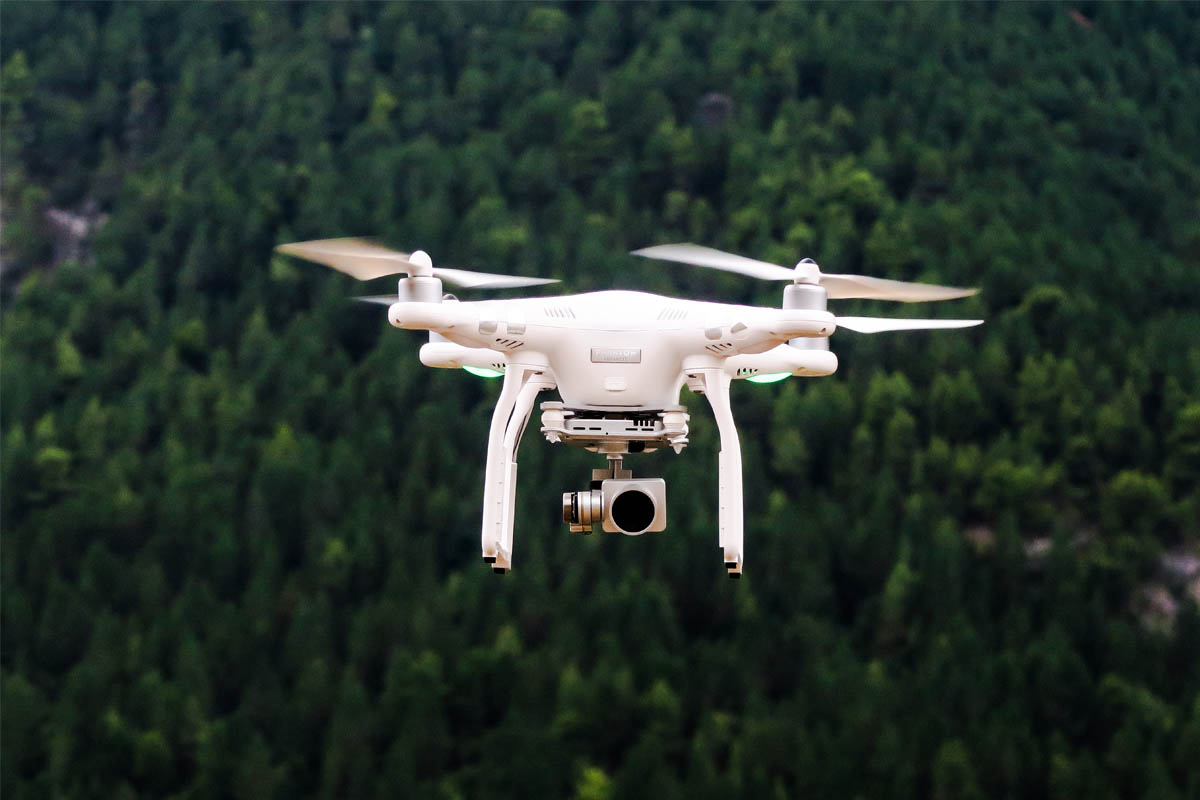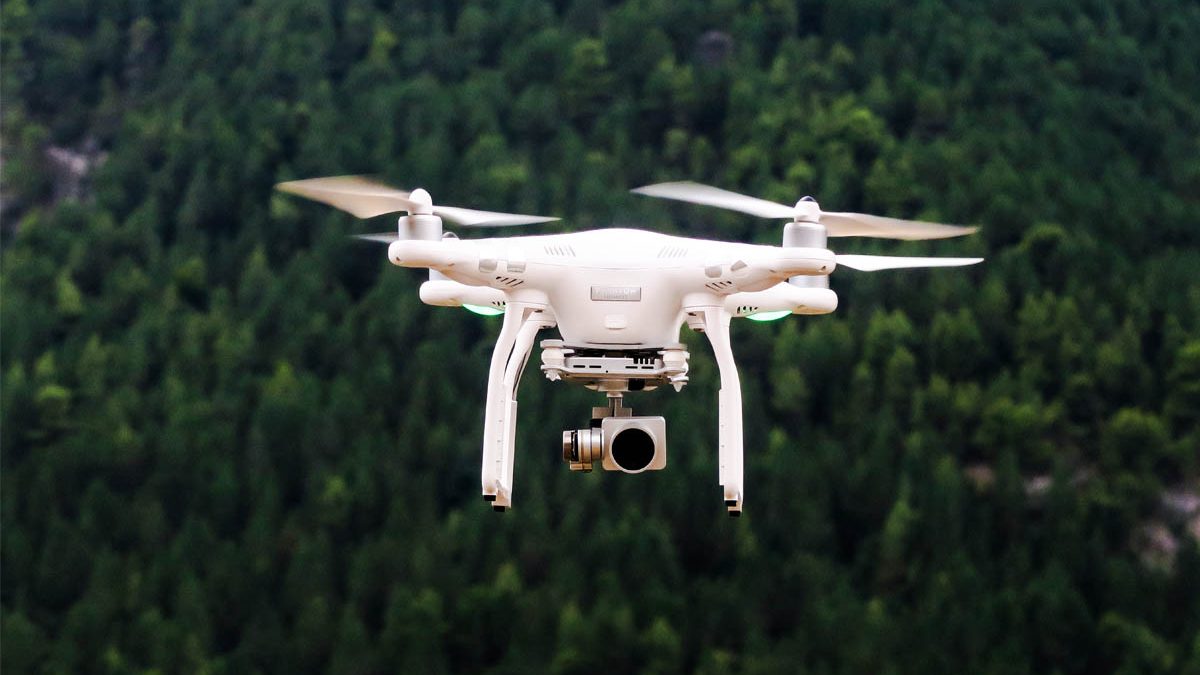The digital revolution is just beginning

Things are changing every day at a fantastic speed so many of these changes go unnoticed, for example how attached we are to our mobile phones, our new habits, how we travel and do business. Nothing is the same as it was, and the objects and machines that will be speaking and doing things for us are yet to come.
By Mitko Arnaudov, Source: Srpska ekonomija magazin
The people in our country may already be tired of hearing about digitalization and the digital revolution, but unfortunately for them, this is just the beginning of it all. Things are going to drastically change even further, which is why it is very important for us to take part in digitalization, the digital transformation. In an interview for Serbian Economy, Branislav Vujović, the president of New Frontier Group and an expert in digital economy, stresses this fact.
Rolls-Royce is making ships that transport cargo autonomously overseas, they are completely closed, and controlled through control centers. There are flying cars, and it is expected that they will go into everyday use very fast, in a few years’ time. At the Tokyo Olympics in 2020, the taxis are supposed to be driverless.
Where are we when it comes to the digital revolution?
Rolls-Royce is making ships that transport cargo autonomously overseas, they are completely closed, and controlled through control centers. There are flying cars, and it is expected that they will go into everyday use very fast, in a few years’ time. At the Tokyo Olympics in 2020, the taxis are supposed to be driverless. Things are changing every day at a fantastic speed so many of these changes go unnoticed, for example how attached we are to our mobile phones, our new habits, how we travel and do business. Nothing is the same as it was. That’s why it’s very important for us to understand that the digital revolution is just beginning. The objects and machines that will be speaking and doing things for us are yet to come.
The industrial company needs to be slowly reorganized, transformed, to be able to accept the new digital economy, adjust to it, and continue to create value for the client in a new way.
How are the companies adjusting to these changes?
If we really want to understand this, we have to take a look at two kinds of companies. The first kind are the all-digital new companies such as Google, Apple and WhatsApp, Nordeus in Serbia. These companies are digitally organized, and they operate digitally. We have digital banks with no branches, which work completely differently. They accelerate the changes by competing with large banks and companies. For example, WhatsApp and Viber have taken away a lot of message communication from Telekom Serbia or VIP. The second kind are industrial companies. What to do with companies built in the industrial times that need to adapt? They need to undergo a digital transformation. This means that the industrial company needs to be slowly reorganized, transformed, to be able to accept the new digital economy, adjust to it, and continue to create value for the client in a new way. If a business has already been optimized, this is a hybrid company. Many think that these industrial companies should digitally transform into digital ones. This is possible, but not necessary. One could use the possibility of combining a physical and digital company; to use what is already there – contact points with clients, such as branches or sales points. It makes sense to combine these with digital channels, they just need to be built in a good way.
Companies don’t need to be large. WhatsApp had 30 engineers and 20 administration officers, and these 50 people sold the company for 22 billion dollars.
What is the difference between the industrial and digital business model, and can they be complementary?
Usually the industrial business model is defined as the pipeline business model. As if you’re traveling through a pipe, all operations go one after another. Therefore, if we agree today to make a new product, we have to think it up, create a design, then plan the production, build a factory, or find someone to manufacture it for us, and when the factory is built we have to plan production, and all this time you are investing money. When the product is made, we let it down the distribution channel. So, we have a supply chain – we give it to distributers, who give it to the dealers, who give it to the stores, which sell the goods to the final user, and only then, at the very end, we achieve value and return some of the investment. The capital, financial means, and human resource investment is enormous. This is the industrial model that we know. Chinese factories manufacture much faster, so the transport is cheaper, they send shoes, phones, TVs etc. all over the world. This is the way it works.
Which other models are there?
There are three more models on the global level. One is the service model, when you sell a service, like banks and insurance companies. They have a manual approach in the industrial model, and they are trying to create an automatic, digital approach in the digital model, to automatize their services. The bank can approve your credit in two seconds online, all you have to do is apply for it, and you get an affirmative or negative answer. Telekom lets you automatically switch to a different payment method, or service plan, etc. This is a switch in the service sector from industrial to digital. Then you have the instance of intellectual property sales, you buy movies from Netflix, or if you have a magazine subscription – everything is done digitally, online. This is the part that enables the sales of intellectual property. And the final, highest form of the digital model is the platform model, which separates property from the service you can give with it. If you own a car, this is your investment in Uber, which only sells the service of you taking the client from point A to point B at a specific price. Uber only makes the platform that connects you to the buyer and optimizes the process. Therefore, the property is separated from the service, same as with Airbnb. These models yield the most value and there are more and more of them, the platform is being used everywhere. Banks already use platforms for some of their functions and principles.
What is the difference between the industrial and digital business models?
Industrial business models have basic means, or capital, which is very expensive, the investments are huge, and they use many people. Digital business models are based on three things. One is data collection and its transformation into information, which is very valuable. The more the information is worth to you, the more the value of the business model is. What does Uber in fact do – it takes your geolocation from your phone, and shows you on a map which driver is the closest to you, and which route he will take to your destination. It actually sells you this information, which is very valuable to you because you need a ride. But if I give you your geolocation at a time when you don’t need it, it’s of no worth to you.
How much does the introduction of digital technologies into small and medium businesses contribute to the development of the economic system of a country in transition?
There are two things to consider here. Firstly, the new digital companies, which are fully digital already. New digital technologies are the basis for their creation. Nordeus has created software which is being sold globally, which tremendously increases the value of the company. In case the small and medium businesses already exist and use the industrial model, the question is how can digital technology help. If they use digital technology only, usually one part will be optimized. The most often used channel is a website used for sales, which is the optimization of one business process or activity. In this case, sales. Maybe also marketing. To really create value, they have to analyze their entire business model and create a digital strategy. They can work step by step, optimize one business activity at a time, and use digital technologies to do it, but they have to look at the entire business model. This is a fundamental difference between digital technology application, which brings a small-scale optimization, and digital strategy and transformation, when the company’s business model is changed. Great possibilities are definitely being created. Companies don’t need to be large. WhatsApp had 30 engineers and 20 administration officers, and these 50 people sold the company for 22 billion dollars. All these big companies founded and operating on digital principles have a small number of employees, many automatized processes, they use digital technologies to cut costs, increasing the value for the users. Based on this, small and medium companies can help the development of economy in all countries.
It’s important to realize that information is the primary resource today.
Does digitalization globally increase unemployment?
Yes. This is a key issue, and you are correct, but let’s look at an example together. Serbia wants to enter the EU, and we expect it to happen in 2025. We would firstly have to sign an agreement on non-customs import from the EU. If we sign this paper, Amazon can sell all their products customs-free. If they do this, many people in Serbia will lose their jobs, because their customers will take their purchases to Amazon. If we are aware of this, we should start the preparations right away and do certain activities to ensure competitiveness. If you deliver something from a warehouse in Belgrade, you can ship much faster than Amazon, you can guarantee one-hour delivery. People like getting their orders as quickly as possible. So, we could compete – there would be an entire array of benefits in relation to shipping costs, etc. I’ll give another example. The Post Office in Serbia has automatized package and shipment sorting, and it’s a fantastic system which can process many things. Of course, about 20 people who did this before were left without a job, but if the Post Office starts competing with Amazon and becomes a platform for Serbia, these 20 people would be able to work with partners and lead this segment. Therefore, a digital transformation done now, and planned well, starting with the entire business model, can help not to save jobs, but to transform them into different ones, which don’t have to be IT related, but are caused by the business model change and the new business model.

Photo by Jason Blackeye on Unsplash
Why is the digitalization of economy in poor countries necessary, and can it lead to accelerated economic growth?
A lot of law regulation is expected here. It was a similar situation with the first industrial revolution. Monopolists appeared and cartels were created, trying to take over the whole world and do all possible industries from steel to machine and small device manufacture. Then, laws were introduced to tear down monopolies and protect from competition. The same will happen in this case. Google, Amazon and Apple are becoming larger and larger and are starting to spread to many spheres. All of them are testing driverless cars. Now, Amazon has a whole array of services, from Alexa, which speaks, to storage and server sales, etc. Countries will protect themselves. We also need to protect ourselves because we are small. For now, there is a law that prescribes that we have to keep all the data on our clients in the country. This is one defense mechanism. Another way is to look for your competitive advantage and create user value on time, before Amazon or somebody else enters, in order to defend ourselves. When you become successful in a small environment, you can expand and enter the global market, because there’s no reason to sell only in one country. It’s not an easy task, but if it’s well thought-out and organized, it can work. This is why a national strategy of the Serbian state is necessary for the digital transformation. It’s one of the things we are lacking. We are doing many small things which are excellent, and I whole-heartedly support them, but we will need a strategy for that. It would be a good thing to include in this strategy some different things, like the way we found new companies and the way to defend ourselves from impact from the outside world.
How does digitalization affect the protection of basic human rights and privacy, considering that using digital measures implies personal data accessibility on online accounts?
This is a very important question. It’s important to realize that information is the primary resource today. The fight between the Russians, Americans and Chinese is fought solely for information. What happened with the presidential elections in the United States, was about who was giving false and who was giving true information, who was trying to influence the people in the pre-election campaign, and how. So, the information becomes the basic resource. Unfortunately, due to the development speed of the digital revolution and its influence, the laws aren’t changing as fast as they should. We already have certain legislation on data protection, who can use which data, but this is not enough. It has to be protected by law first, before building the infrastructure to protect ourselves in the digital economy. This is the first order of business. Do we have more privacy or less, I don’t know right now. I was suggesting even some five-six years ago, in the case my system fails and I lose my data, I could ask one of the world intelligence agencies, American, Russian, Chinese, to give me a backup of my system, because they copy it all anyway. We can probably never protect ourselves from that. We are too small of a country. They copy all the data and analyze it. Unfortunately, it is something we have to accept. But we have to make legislation to protect the data and bring about the rules on how to use it. There are many other things. Does a company have the right to use my data, and if so, how? In May of this year GDPR is issued, a law for EU citizens that everyone will have to apply. Then, no one will be able to use my data without permission if I am an EU citizen, even if I were in Serbia. As an EU citizen, I’m protected. When I say ‘delete my data’ you have to do it. You have to ask me if you can use this data. Data has become the greatest asset, it is used to create information which is valuable to users, on how to get business. This is the basis of everything.
To what degree of causal consequence are product branding on the market and digital technologies connected?
I don’t see a big difference. There is only a difference in how you brand online vs. the physical world. As we said, these digital changes, i.e. digital economy, produce a physical-digital company. Then all of your touch-points, all the places you get in contact with a company, must be equal and well-executed to maintain your brand. This is very difficult. This is why there is a lot of talk about these omni-channels – if a user comes to a branch and starts a process, he can continue it online, and finish it on the mobile phone. You simply switch from one channel to another, all the while knowing which phase the product or application is in. This is very difficult now. Most of the digital transformation today is boiled down to making our services omni-channel. This affects the brand, which is perceived differently due to digitalization. For example, Kodak was the fifth brand in the world and then it disappeared, because it failed to adapt to the digital times. Even though they invented the camera, they failed to adapt on time because they received too much money from old projects and the old way of doing business. That’s why they couldn’t see that digital photos will multiply in billions, and even though they don’t yield big profits individually, they can earn a lot. This applies to brands, and many of them will fail this way. You can now see that the average lifespan of a company is much shorter than it used to be, due to all these changes and the influence of the digital revolution.
Branislav Vujovic is founder and also president of New Frontier Group and has overall responsibility for the New Frontier Group, with special focus on Innovation, M&A strategy, group strategy and investor relationship.[/kswr_iconboxinfo]

